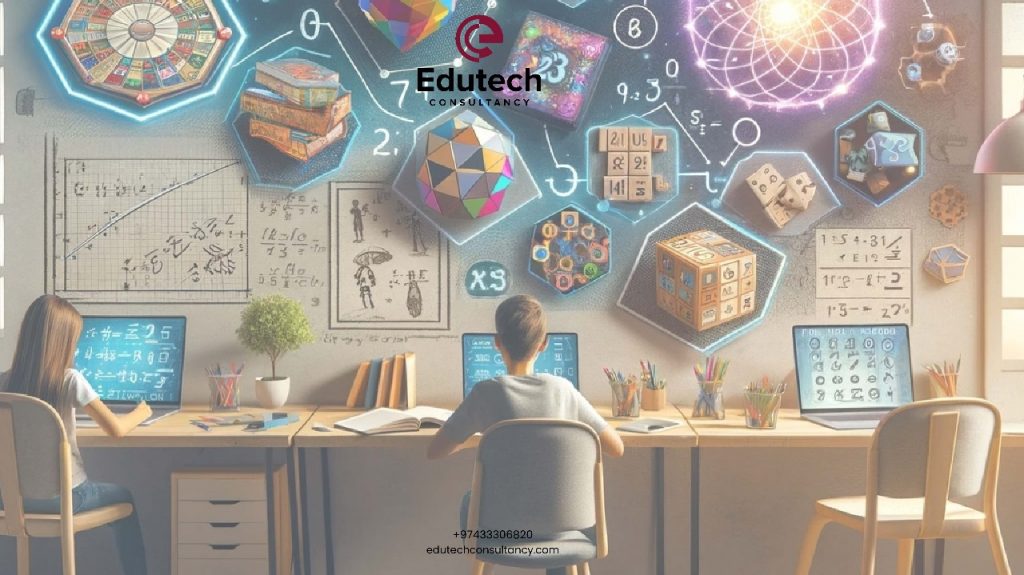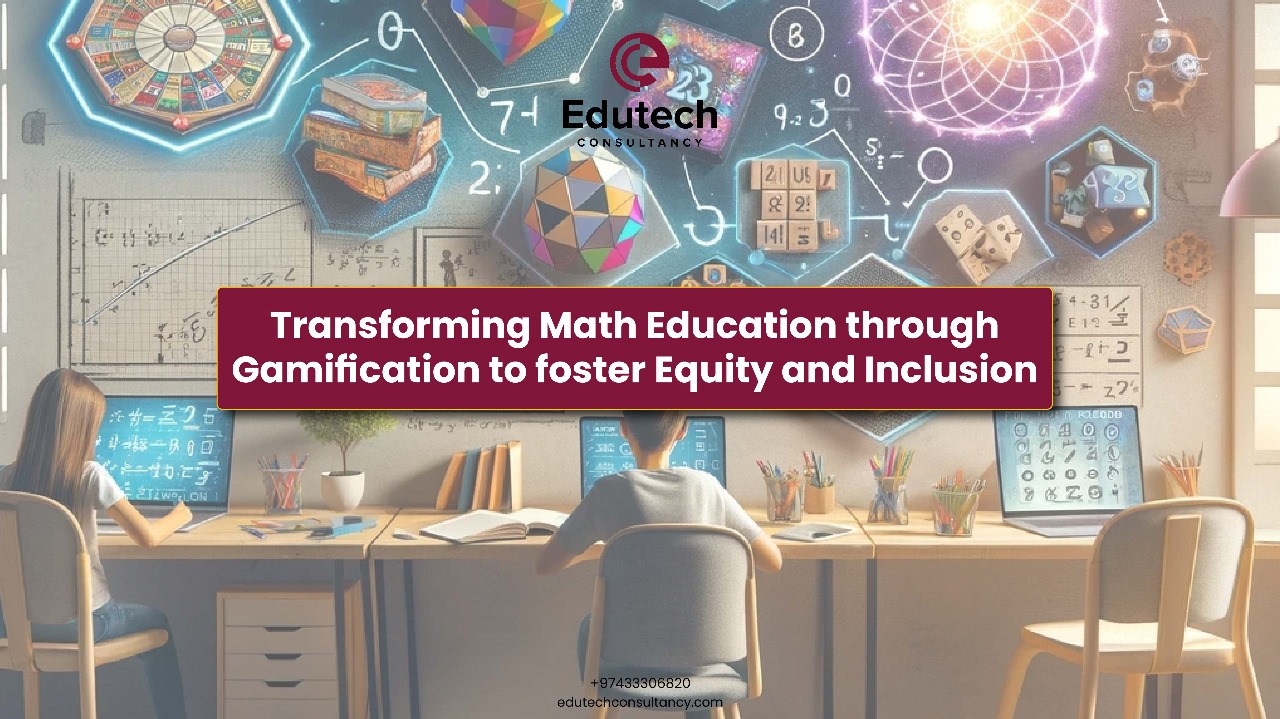Equality and inclusivity are highly valued in the current educational system, specifically in context of Math subject. Unfortunately, the traditional teaching methods might contribute to educational gap, that drive factors ranging from learning abilities, curriculum alignment, barriers, motivation and engagement. Nevertheless, the application of the gamification approach leads to positive changes in math education transforming the learning space. This makes it interesting and more stimulating as well as rightful for every student.
Pros of Employing Gamification in Math Education
Gamification creates a bridge to assist the students in the area of challenges. Herein, gamification can largely assist in an educational setting where each student can be successful if they provide multi-level and diverse challenges and games for different learning styles.
Some of the key ideas of gamification are listed henceforth:
- A growth mindset
- Increase students attention span
- Enhanced learning experience
- Creating positive learning environment
- Boosts learning retention
- Makes it engaging to learn
- Helps improve Math scores
- Promote equity amongst students

The traditional teaching methods present the same static pictures of intelligence and ability in children’s minds. Whereas, the gamified learning experiments creates an atmosphere where students look at failures as a natural component of the learning process. Through the recognition of difficulty and assistance, gamification teaches the students the ability to keep focus and restore.
Such change in thought processes among students is highly important for achieving equality in high school math education. This helps students to have determination coupled with the readiness to face the challenges ahead and embrace new knowledge gaining thrills. Besides that, gamification provides personalized involvement and understanding of math which is instrumental in developing an independent and strong learning mindset.
Gamification Technology
As a matter of fact, the gamification technology represents both opportunities and difficulties for equity and inclusion. Educators need to be careful in terms of factors of accessibility, diversity, and equity at every item of the gamification process. It includes making sure that gamified learning environments and experiences are wide-ranging. Students from all socio-economic backgrounds and different ability levels would be able to access them.
Besides, teachers need to ensure that game design does not by chance reinforce or exclude any student populations. These problems are solved when educators incorporate gamified learning settings that would be fair, equitable, and consistent among all students.
Promotes collaboration
On a similar note, gamification in Math education is based on social-emotional learning elements that are as important as teamwork, empathy, and communication skills and these are the pillars for constructing a diverse and inclusive school community.
One way of creating an inclusive environment is to design tasks that consist of team-based challenges that promote collaboration and cooperation as the ultimate elements of the players’ success. This creates a friendly atmosphere where every student sees themselves as an integral part of the group and feels both accepted and welcome to contribute.
Project-Based Learning
Furthermore, gamification has the potential of using project-based learning, allowing students to solve problems that build real-world connections and apply concepts that they have learned collaboratively. Through the use of gaming elements such as rewards and story settings where math-based problems can be experienced practically, educators can significantly enhance students’ learning capabilities.
This also ensures that they do not just understand the concepts but to a greater extent get hold of the importance to their study of Mathematics. Students get to the idea that math can become a really helpful tool and that’s why they become more eager to learn and dig deeper into the subject.
Gamifying into Math Education
In summary, gamification can be an inspiration to reinvent Math learning and success since it is non-discriminatory and accommodates all students. This engages student interactions and promotes expression; hence, these are elements that could be adopted in class with purely successful results. Game-related tasks could, therefore, be used to equalize learning spaces and build students’ belonging and identity. With game-oriented tasks, math will be made easy and relatable to understand.
This again could be carried out through several methods that include humor and creativity in solving math problems. Learners will no longer be anxious about Math; instead, Gamification can enable teachers to achieve boosted Math scores in students as they take a step to establish classrooms where even the weakest in Math prevail and excel beyond it.
As we aspire to continue the journey of gamification in education specially Math Education and develop it further, we would like you to explore one such option where students are enabled to learn in open and full of support environments with better engagement, interest and excitement in Math.
Join our Free webinar on Mangahigh which is a digital math resource used by teachers as a wonderful companion in their Math classrooms. This webinar is the first one from our Virtual learning event; The Tech-Forward Classroom which is all set to start on 1st May.
To register for the free webinar click here!


